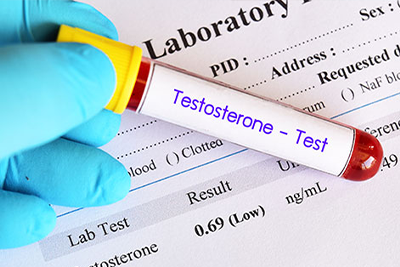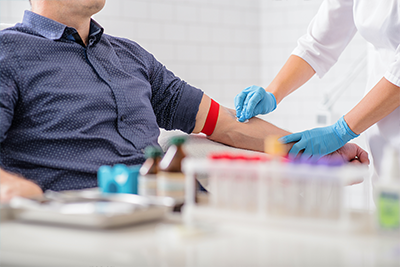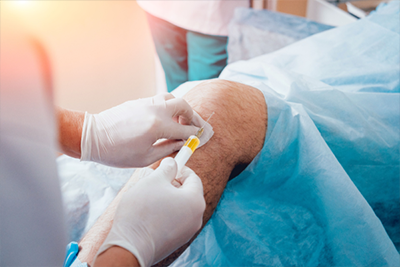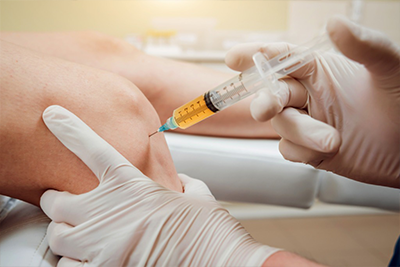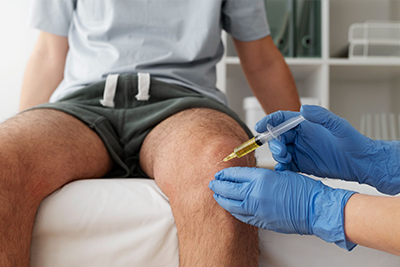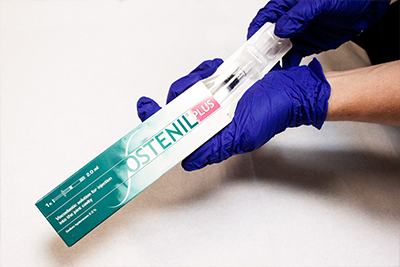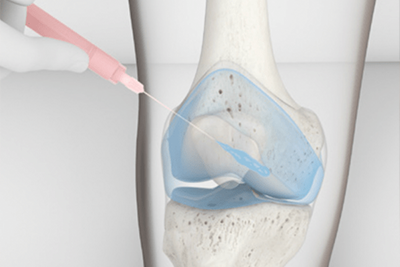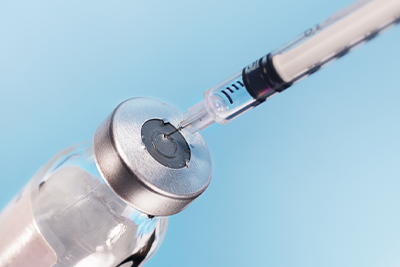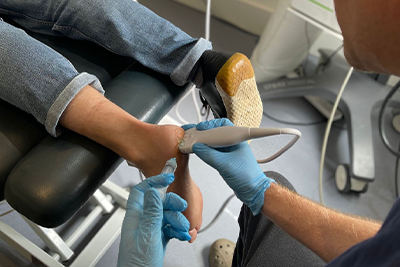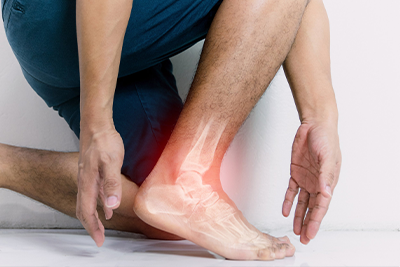Vasectomy is a reliable and widely chosen method of contraception among men seeking a permanent solution to family planning. This surgical procedure, which involves the cutting and sealing of the vas deferens to prevent sperm from entering the ejaculate, boasts a remarkable success rate in preventing pregnancy. However, despite its efficacy and relative simplicity, vasectomy is often shrouded in misconceptions and unfounded concerns, particularly regarding its impact on male sexual function. Among these, the fear that vasectomy could lead to erectile dysfunction (ED) is prevalent, causing undue anxiety and hesitation for many men considering the procedure.
Erectile dysfunction — the inability to achieve or maintain an erection sufficient for satisfactory sexual performance — is a complex issue that can stem from various physical and psychological factors. The association of vasectomy with ED is a myth that persists in the public consciousness, deterring some men from opting for this form of contraception. We aim to clarify the relationship between vasectomy and erectile function.
Vasectomy
A vasectomy is a surgical procedure designed for male sterilisation, serving as a long-term solution to prevent pregnancy. It is a popular choice for men who are sure they do not want to father children in the future, offering a nearly 100% success rate in preventing conception. The procedure is favoured for its efficacy, minimal invasiveness, and its lack of significant impact on sexual function.
Vasectomy Procedure
Surgical Technique:
Vasectomy involves the cutting, sealing, or otherwise blocking of the vas deferens, the tubes that carry sperm from the testicles to the urethra. Without access to the urethra, sperm cannot be released and are absorbed by the body.
Method of Operation:
The procedure is typically performed under local anaesthesia in a doctor’s office or clinic and takes about 20 to 30 minutes. There are two main types of vasectomy: conventional and no-scalpel.
- The conventional vasectomy involves making one or two small incisions in the scrotum to access the vas deferens.
- The no-scalpel vasectomy uses a small puncture to reach the vas deferens, reducing bleeding and the risk of infection and often resulting in quicker recovery times.
Recovery:
Post-operation, men may experience mild discomfort, swelling, or bruising, which typically resolves within a few days. Most men can return to work and normal activities within a week, although it’s advised to avoid strenuous activity and sexual intercourse for a short period to allow proper healing.
Vasectomy Efficacy
Success Rate:
Vasectomy is one of the most effective forms of contraception available, with success rates exceeding 99.9%. It is a permanent solution, making it an important decision that requires careful consideration.
Reliability:
Unlike other forms of birth control, the reliability of a vasectomy is not dependent on daily, weekly, or monthly adherence. Once the sperm count reaches zero post-procedure, as confirmed by a follow-up semen analysis, the chance of pregnancy is virtually non-existent.
No Impact on Pleasure:
Significantly, vasectomy does not affect the production of male hormones, nor does it impact a man’s ability to have erections, orgasm, or ejaculate. The only difference is that the ejaculate no longer contains sperm.
Vasectomy and Its Impact on Sexual Function
Vasectomy, a surgical intervention designed for male sterilisation, has a specific and limited scope: it interrupts the transport of sperm by severing or blocking the vas deferens. Despite widespread misconceptions, it’s crucial to understand that this procedure does not directly affect a man’s erectile function or sexual desire. However, the psychological ramifications of undergoing a vasectomy can indirectly influence sexual performance for some individuals.
Direct Impact on Sexual Function
Surgical Focus:
The procedure targets only the vas deferens, ensuring that sperm cannot reach the seminal fluid. This action does not involve the nerves or blood vessels responsible for erections, nor does it affect the glands that produce hormones related to sexual desire.
Preservation of Sexual Functions:
Post-vasectomy, men continue to produce sperm, but the body reabsorbs these. Testosterone levels, libido, and the ability to have erections remain unchanged. Orgasm and the sensation of ejaculation are also typically unaffected, with the ejaculation appearing the same minus the presence of sperm.
Psychological Impact and Sexual Performance:
Anxiety and Concerns:
While vasectomy does not physiologically impact sexual function, some men may experience anxiety or concerns about their sexual identity and performance post-procedure. Worries about changes in sexual capabilities or partner perception can lead to stress that might temporarily affect sexual performance.
Communication and Counselling:
Addressing these psychological effects is essential. Open communication with partners and counselling with healthcare professionals can provide reassurance and help dispel unfounded fears, ensuring that the decision to undergo a vasectomy is made with a clear understanding of its actual impacts.
Improved Sexual Experience:
For many men and their partners, the assurance of effective contraception provided by a vasectomy enhances their sexual experience. The elimination of pregnancy concerns can lead to a more relaxed and enjoyable sex life, potentially improving intimacy and satisfaction.
Indirect Effects on Sexual Health
Need for Support:
Men considering a vasectomy should seek support and counselling to address any psychological concerns. Healthcare providers can offer comprehensive information about the procedure, its effects, and strategies for maintaining a healthy sexual relationship post-vasectomy.
Monitoring Mental Health:
It’s also beneficial for men to monitor their mental health post-procedure. If feelings of anxiety or depression persist, professional psychological support may be needed to address these issues effectively.
In summary, vasectomy is a safe and effective method of contraception that does not directly impair erectile function, libido, or sexual satisfaction.
Myths about Vasectomy and ED
Vasectomy, a widely used method of contraception, is surrounded by misconceptions, especially regarding its impact on sexual function. One of the most persistent myths is that a vasectomy can lead to erectile dysfunction (ED).
Vasectomy Leads to Erectile Dysfunction
Clarification:
The belief that vasectomy causes ED is unfounded. Vasectomy is a procedure that involves the vas deferens, the tubes responsible for transporting sperm from the testicles to the urethra. It does not interfere with the nerves, blood vessels, or structures that are crucial for achieving and maintaining an erection.
Evidence:
Medical research and clinical studies have consistently shown that there is no direct link between vasectomy and the development of ED. Men undergoing a vasectomy can achieve erections and enjoy sexual intercourse just as they did before the procedure.
Vasectomy Affects Sexual Desire and Pleasure
The Truth About Libido:
Another common misconception is that vasectomy negatively impacts libido or sexual pleasure. This is incorrect; vasectomy does not alter hormone levels or affect a man’s libido. The procedure merely prevents sperm from being part of the ejaculate without reducing sexual drive or pleasure.
Sexual Function Post-Vasectomy:
Studies have indicated that many men report unchanged or even improved sexual satisfaction after vasectomy. This improvement is often attributed to the elimination of the fear of unintended pregnancy, allowing for more relaxed and enjoyable sexual experiences.
Vasectomy Is a Permanent Cause of ED
Reversibility and ED:
While vasectomy is considered a permanent form of contraception, it is reversible through a surgical procedure known as vasovasostomy. Importantly, neither vasectomy nor its reversal has been shown to cause ED. The processes focus on the vas deferens and do not impact the mechanisms involved in erectile function.
Addressing Psychological Factors:
Anxiety and ED:
It’s important to recognise that while vasectomy itself does not cause ED, anxiety about the procedure and misconceptions surrounding it can contribute to sexual performance issues. These are psychological rather than physiological effects, and addressing any concerns or fears with a healthcare provider can alleviate such anxieties.
The Physiology of Erectile Function
Understanding the physiology of erectile function is crucial in dispelling myths about the impact of vasectomy on sexual health. Achieving and maintaining an erection is a complex process involving psychological, neural, hormonal, and vascular factors.
Overview of Erectile Function
Initiation of Erection:
Sexual arousal initiates a series of events where the brain and local nerves send signals to the muscles in the penis. This neural communication leads to the relaxation of smooth muscles in the arterial walls of the corpora cavernosa (the two cylindrical structures in the penis), facilitating increased blood flow into the penis.
Maintenance of Erection:
As blood fills the corpora cavernosa, it expands, compressing the veins that usually allow blood to flow out of the penis, thus maintaining an erection. This process is supported by the trapping of blood in the penile tissues, a mechanism regulated by testosterone and other hormones.
Role of Hormones:
Testosterone plays a crucial role in modulating libido and the erectile process. It influences the production of nitric oxide, a key molecule that triggers the relaxation of smooth muscles in the penis, allowing for increased blood flow necessary for an erection.
Vasectomy and Erectile Function
No Interference with Blood Flow:
Vasectomy involves severing or blocking the vas deferens to prevent sperm transport. This procedure does not affect the arteries or veins in the penis, meaning the blood flow necessary for achieving and maintaining an erection remains unchanged.
Preservation of Nerve Supply:
The nerves responsible for triggering erections are located far from the site of a vasectomy and are not disturbed by the procedure. The neural pathways that facilitate the erection process remain intact, ensuring that the ability to achieve an erection is not impacted.
Hormonal Balance Maintained:
Significantly, a vasectomy does not affect testosterone production or hormonal balance. The testicles continue to produce testosterone at normal levels, which is essential for libido and overall erectile function.
The physiological process of achieving and maintaining an erection involves a coordinated interplay of neural signals, hormonal influences, and vascular dynamics. A vasectomy, which solely targets the vas deferens for sterilisation, does not interfere with any of these critical components of erectile function.
Research Findings on Vasectomy and Sexual Health
The relationship between vasectomy and sexual health has been extensively studied, with numerous research projects and clinical studies aiming to understand any potential impact of vasectomy on sexual function, including erectile dysfunction (ED).
Overview of Research Studies
Longitudinal and Comparative Studies:
Numerous longitudinal studies, which follow participants over time, as well as comparative studies comparing men who have had vasectomies with those who have not, consistently report that vasectomy does not increase the risk of developing ED.
Analysis of Sexual Function Post-Vasectomy:
Research focusing on various aspects of sexual function—including libido, satisfaction, frequency of sexual activity, and erectile function—post-vasectomy has found that most men experience no significant change. Some studies report improvements in sexual satisfaction, likely due to the elimination of pregnancy concerns.
Evidence Against the Correlation with Erectile Dysfunction
No Direct Link to ED:
Systematic reviews and meta-analyses of existing research have found no direct link between vasectomy and the onset of erectile dysfunction. The physiological process of achieving and maintaining an erection remains unaffected by the procedure.
Hormonal Studies:
Investigations into testosterone levels and other hormonal factors post-vasectomy have shown no significant hormonal changes that could impact erectile function. Testosterone levels, crucial for libido and erectile health, remain consistent before and after vasectomy.
Psychological Impact Considerations
Addressing Psychological Effects:
While the physical aspects of erectile function are not impacted by vasectomy, some studies suggest the importance of considering psychological responses. Anxiety or misconceptions about vasectomy can affect sexual performance, underlining the need for thorough pre-procedure counselling.
Improvement in Sexual Health:
Research also highlights that, for many men, the absence of worry over unwanted pregnancy leads to a more relaxed and enjoyable sexual experience post-vasectomy. This psychological relief can contribute to an overall improvement in sexual health and satisfaction.
Summary of Findings
The preponderance of research findings suggests that vasectomy is a safe contraceptive method with no direct impact on erectile function or overall sexual health. The procedure does not interfere with the physiological mechanisms underlying erectile function nor affect hormonal balance. Any changes in sexual health following a vasectomy are more likely attributed to psychological factors rather than physiological changes, emphasising the importance of addressing any concerns or anxieties men may have about the procedure.
Psychological Impact of Vasectomy on Sexual Performance
While vasectomy has been shown not to affect the physiological aspects of sexual function directly, its impact on the psychological domain cannot be overlooked. For some men, the decision to undergo a vasectomy, along with misconceptions about its effects, can lead to anxiety and concerns that indirectly influence sexual performance.
Anxiety and Concerns Post-Vasectomy
Fear of Loss of Masculinity:
Some men may perceive vasectomy as a threat to their masculinity or sexual identity, fuelled by societal stereotypes or personal beliefs about fertility and manhood.
Worry About Sexual Function:
Despite medical assurances, worries about potential changes in libido, erectile function, or overall sexual satisfaction post-vasectomy can create anxiety, which in itself can be a contributing factor to ED symptoms.
Stress from Partner Expectations:
Concerns about meeting a partner’s expectations or changes in a partner’s perception post-vasectomy can add psychological stress, affecting sexual desire and performance.
Strategies for Managing Psychological Impacts
Pre-Vasectomy Counselling:
Comprehensive counselling before the procedure can address misconceptions and provide accurate information about the effects of vasectomy on sexual function. Understanding that vasectomy does not physically alter one’s ability to perform sexually can alleviate many concerns.
Open Communication with Partner:
Discussing fears, expectations, and any changes in sexual health openly with one’s partner can strengthen the relationship and reduce anxiety. Partners can play a supportive role in the adjustment period following a vasectomy.
Post-Vasectomy Support:
Joining support groups or forums where men share their experiences, post-vasectomy can provide reassurance and dispel common fears by learning from others who have gone through the procedure.
Professional Help if Needed:
If anxiety or psychological stress persists and adversely affects sexual function, consulting a mental health professional or a sex therapist can be beneficial. Therapy can offer strategies to cope with anxiety and improve sexual health.
Maintaining a Healthy Sexual Relationship Post-Vasectomy
Reaffirming Sexual Identity:
Reinforcing the understanding that vasectomy does not diminish masculinity or sexual capability can help men regain confidence in their sexual identity.
Exploring New Dimensions of Intimacy:
Couples can use the experience as an opportunity to explore new dimensions of intimacy and sexual expression, free from the concern of unwanted pregnancy. Expanding the repertoire of sexual activities to include more non-penetrative acts can enhance sexual satisfaction and intimacy, reducing pressure on performance.
Addressing Erectile Dysfunction Post-Vasectomy
Experiencing symptoms of erectile dysfunction (ED) after a vasectomy can be distressing for men, impacting their quality of life and relationships. It’s essential to address these symptoms promptly and effectively.
Initial Steps for Men Experiencing ED Symptoms Post-Vasectomy
Acknowledgment and Assessment:
Recognise and document the specifics of the ED symptoms, noting when they occur, under what circumstances, and their severity. This information is vital for a healthcare provider to understand the nature of the problem.
Professional Advice:
Consult a healthcare provider to discuss the onset of ED symptoms post-vasectomy. A thorough medical evaluation is essential to determine the underlying cause of ED and rule out any connection to the vasectomy procedure itself.
Comprehensive Evaluation:
The evaluation may include a physical examination, a review of medical and sexual history, and possibly laboratory tests to assess hormone levels and other indicators of health that might influence erectile function.
Distinguishing Between Psychological and Physiological ED
Understanding the Distinction:
Psychological ED is often situational, linked to anxiety, stress, or relationship issues. In contrast, physiological ED tends to be more consistent across situations and can be related to health conditions or lifestyle factors.
Identifying Psychological Contributors:
For some men, anxiety about the vasectomy procedure or misconceptions about its impact on masculinity and sexual performance can lead to ED. Recognising these psychological factors is crucial for addressing ED effectively.
Exploring Physiological Factors:
Although vasectomy is unlikely to cause ED directly, it’s essential to consider other physiological factors that might contribute to ED, such as cardiovascular disease, diabetes, hormonal imbalances, or medication side effects.
Appropriate Treatment
Psychological Support:
If psychological factors are identified as the primary contributors to ED, counselling or therapy, possibly including sex therapy, can be beneficial. These interventions can address anxiety, improve communication with partners, and rebuild sexual confidence.
Medical Treatments:
For physiological causes of ED, various treatments are available, ranging from oral medications (such as PDE5 inhibitors) to vacuum erection devices, penile injections, or even surgical options in severe cases. Lifestyle modifications, including exercise, diet changes, and quitting smoking, can also improve erectile function.
Follow-up and Adjustment:
Regular follow-up appointments with a healthcare provider are necessary to monitor the effectiveness of the treatment plan and make adjustments as needed.
Related Articles
- Causes of Erectile Dysfunction in the UK
- Erectile Dysfunction and Underlying Health Conditions
- Testing for Erectile Dysfunction Yourself
- Diabetes and Erectile Dysfunction: The Facts
- Understanding the Signs and Symptoms of Low Testosterone Every Man Should Know About


